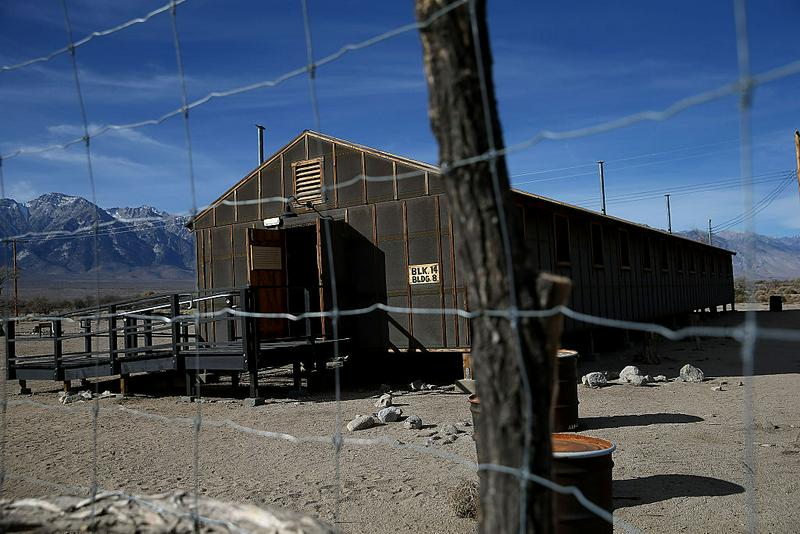A Good List Of Great Americans Who Were Held In Japanese Internment Camps
By | February 17, 2020

On February 19, 1942, President Franklin Delano Roosevelt signed Executive Order 90066, A.K.A. the deeply unconstitutional order to the military to round up anyone of Japanese descent and lock them in internment camps.
Why would the United States government do such a thing? Short answer: Racism. Long answer: On December 7, 1941, Japanese air forces struck a navy base in Hawaii without warning, killing and injuring over 3,000 American service members and civilians. The attack on Pearl Harbor was especially surprising and traumatizing because the United States wasn't officially part of World War II yet, and the Japanese hadn't made any declarations against the U.S. Of course, America joined the war soon after (and eventually won, along with the other Allied Nations). Their hand was kind of forced.

In the meantime, however, suspicions were brewing in the States. Those of Japanese descent fell under immense scrutiny, while those of German and Italian descent (the other Axis countries) were more or less free to go about their business. The wartime paranoia and racial tension eventually culminated in F.D.R. green-lighting American concentration camps, resulting in the internment of over 110,000 people of Japanese ancestry. Two-thirds of them were American-born.
The government seized property, froze bank accounts, and forcibly relocated families who lived too close to military zones for the government's comfort. They were placed in "relocation centers" and not allowed to leave, although within the barbed wire of the camps, the military left the Japanese and Japanese-Americans to their own devices. They created some semblance of community and home life, with schools, churches, and community events. Many of the residents of these camps went on to be prominent figures in American culture.

One notable internment prisoner was actor George Takei, famous for his portrayal of Sulu on the original Star Trek series. Long before he was zooming across the galaxy on the U.S.S. Enterprise, young George was greeted at his home by the U.S. military, who forced him and his family out of their house at gunpoint when he was only five years old. Initially, he was taken to a makeshift camp at the Santa Anita horse track, where he and his family slept in stables. For the next three years of his life, he bounced from camp to camp and had his loyalty questioned many times. Referring to the experience as a "dark chapter in history," he has spoken out more recently against the incarceration of migrant families in I.C.E. facilities. Despite the indignity of his imprisonment during the war, he says he is glad he was never separated from his family or locked in a cage, and believes the contemporary situation is "a grotesque new low" by comparison.

Karate Kid star Pat Morita knew a lot about overcoming adversity as a kid. For most of his life, Morita was in and out of the hospital thanks to a long battle with tuberculosis, which he contracted at only age two. Finally, after years of physical therapy and a spinal surgery that finally allowed the boy to walk, he was released from the hospital at age 11. However, it wasn't his adoring mother who picked him up. It was two F.B.I. agents, who escorted him from the hospital all the way to Arizona, where his family was interned. Although he says he was too young to truly appreciate the gravity of what was going on, he recognized the toll it took on his parents.

As if his story needed to be sadder, 10-year-old Norman Mineta was forced to leave his dog behind when he was relocated to Wyoming, where he suffered the cold winters with little more than his California wardrobe. Despite this traumatizing early experience with the U.S. government, Mineta grew up to be a respected Congressman, serving as Secretary of Commerce under Bill Clinton and Secretary of Transportation under George W. Bush. During his time in Congress, a sympathetic Los Angelino heard the story of military personnel taking away the young Mineta's beloved baseball bat and sent him a bat that had been owned by Hank Aaron to make up for it. Ironically, the bat was so expensive that Mineta couldn't legally accept it while he served in office. He thanked the man and quipped "the damn government's taken my bat again."

If you love Scooby-Doo, you can thank Iwao Takamoto, former prisoner of American internment camps. Like the others, his time in the camp would prove upsetting yet formative, as he learned to draw under the wing of two other prisoners while he was interned at the Manzanar War Relocation Center in California. This experience led to a long and arduous journey of self-education before he landed jobs at Disney and Hana-Barbera. He would go on to create the character and design of the iconic Scooby-Doo, whom he named after a Frank Sinatra lyric. He contributed greatly to the look and design of cartoons like The Flintstones, The Jetsons, and Lady and the Tramp before moving on to directing the all-time classic Charlotte's Web.
In all the years of internment, not a single Japanese person in the camps was charged with espionage or treason, let alone convicted. The United States's 442nd Infantry Regiment, whose troops were almost exclusively Japanese-American, is the single most decorated unit in American history to this day. The government later admitted that the internment was wrong, and in 1988, every survivor received $20,000 in reparations for their suffering and loss of property.

